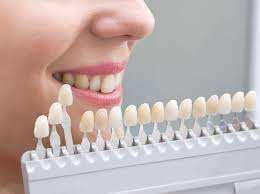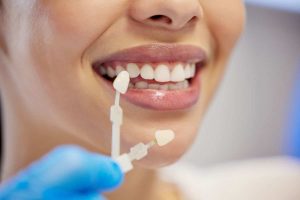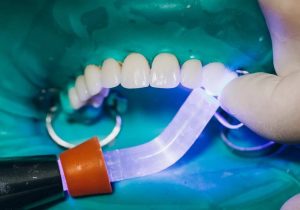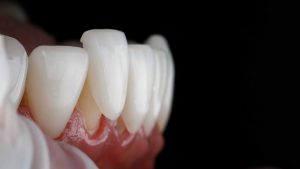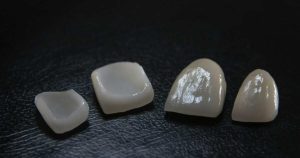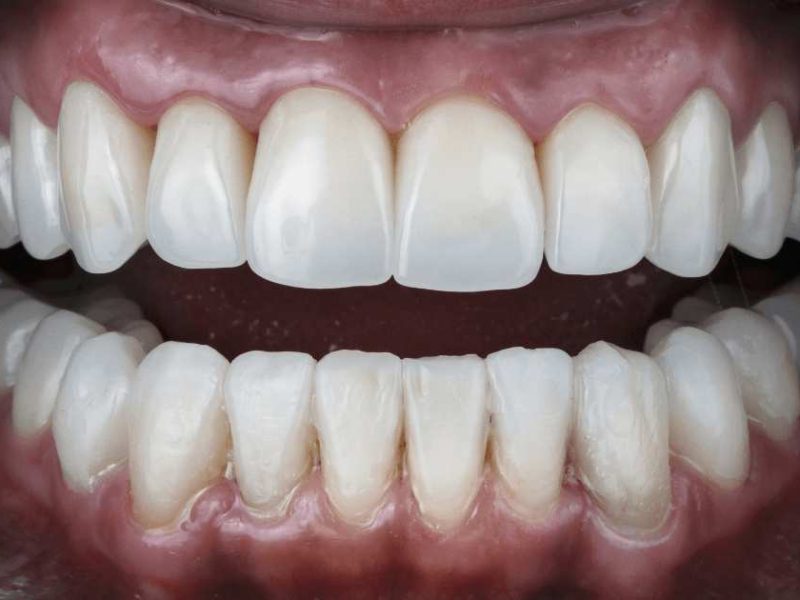One of the most successful cosmetic dentistry treatments to reach this is dental veneers; a smile makeover can be really transforming. Making wise decisions requires an awareness of the dental veneers both before and after experience. Covering the front surface of your teeth, veneers are thin, custom-made shells that help to address flaws including misaligned, discolored, or cracked teeth. Dental veneers offer a stunning, natural-looking enhancement whether your goal is to change the appearance of one tooth or complete smile transformation. Many people find veneers to be a perfect choice since this fast, non-invasive treatment produces long-lasting effects.
It’s crucial to know, though, what to expect both before and after the operation before deciding on it. There are preparations to be made, possible adverse effects to take into account, and maintenance actions for long-lasting success; the process goes beyond simply obtaining veneers. From the first consultation and preparation to recovery and advice for preserving your new smile, this complete guide will walk you through the dental veneers before and after experience. By then you will have all the knowledge need to boldly determine whether dental veneers are the best option for you.
What Are Dental Veneers?
Made to fit over the front surface of teeth, dental veneers are thin porcelain or composite resin shells. Their main use is cosmetic; they mask flaws including:
- Uneven or deformed teeth.
- Chipped or broken teeth.
- Discoloration or stains not removable with whitening.
- Gaps between teeth.
Why pick dental veneers?
- Natural look that matches your actual teeth.
- Durable and long-lasting effects.
- Quick cosmetic improvement.
Before the Operation: Dental Veneers
Initial Consultation
You will have to visit your dentist first in order to obtain dental veneers. Your dentist will:
- Review your oral health: Make sure your teeth and gums are in good condition free of problems including gum disease or cavities.
- Talk on your objectives: Essential is knowing the look you wish to have. Your dentist will help you create reasonable expectations whether your desired smile is whiter, more even teeth, or a smile makeover.
- Develop a treatment schedule: Your dentist will walk over the procedures required, including the expected completion timeline and the number of veneers you need.
To guarantee an exact fit for the veneers, your dentist might also take X-rays, pictures, and imprints of your teeth.
Teeth Preparation
Dental veneers technique next moves to tooth preparation. This is what transpires:
- Minimal enamel removal: A tiny bit of enamel about 0.5mm will be taken from the front of your teeth to guarantee the veneers look natural and fit well.
- Temporary veneers: Your dentist will give you temporary veneers while the personalized veneers are being created in the lab typically one to two weeks.
Dental Veneers Following the Procedure Direct Aftercare
Once your veneers are in place, there are a few key things to consider:
Immediate Aftercare
- Mild sensitivity or discomfort: For a few days, it is usual to feel somewhat sensitive to hot or cold foods and drinks.
- No immediate changes required: Since veneers are made to fit exactly, most people walk out of the dentist with a breathtaking new smile. If changes are needed, though, they often can be accomplished at a follow-up appointment.
Things To Steer Clear Of Right After Getting Veneers
- Avoid hard meals: For a few days, it’s better to refrain from biting on hard foods or items (like ice or pens).
- Limit foods causing staining: To let your veneers settle over the first few days, be clear of foods and beverages including coffee, red wine, or berries that can stain them.
Extended Maintenance for Dental Veneers
Proper maintenance of your veneers will guarantee their years of lifetime. These are some important aftercare pointers:
- Brush and floss regularly: View your veneers as natural teeth. To stop plaque development, floss and brush twice a day with a non-abrasive toothpaste.
- Frequent dental evaluations: See your dentist often to be sure your veneers are in good shape.
- Steer clear of teeth-gritting: If you grind your teeth—bruxism—you might want to think about wearing a nightguard to protect your veneers.
The Amazing Results: Dental Veneers Before and After
Dental veneers can completely change your smiles. Here are some expected normal findings both before and after the operation:
Before Dental Veneers
- Regular whitening procedures cannot erase obvious stains on teeth.
- Teeth may be uneven, cracked, or chipped, so your smile seems less consistent.
- The appearance of your smile could suffer from dental gaps.
After Dental Veneers
- Veneers can remove stains and discolouration, therefore producing a Hollywood-like smile.
- Uniform and even smile: Veneers will help you to produce more symmetrical and aligned grin.
- Many people report feeling more confident in social and professional environments following veneer placement.
Dental Veneer Expense
Dental veneers price might vary depending on a number of elements:
- Material choice: Porcelain veneers natural look and durability make them often more costly than composite resin veneers.
- Veneer count: The cost increases with increasing required number of veneers. Usually the upper front teeth, most people decide to have veneers for their visible teeth.
- Location: The dentist’s experience and your residence will affect the costs.
Porcelain veneers normally cost between $925 and $2,500 per tooth.
Dentistry Veneers: Pros and Cons
Pros
- Natural-looking results: Highly reflecting porcelain veneers resemble teeth’s natural luster.
- Long-lasting: With good care, veneers can last 10–15 years or more.
- Stain-resistant: porcelain keeps your smile brilliant since it resists stains.
Cons:
- Expensive: Veneers are a cosmetic surgery; some patients may find its expense to be prohibitive.
- Permanent: Veneers are a permanent change to your teeth since once enamel is lost it cannot be replaced.
- Potential for damage: Although strong, veneers may chip or shatter with too much force—such as that which results from eating hard objects or grinding teeth.
Who Is a Candidate for Dental Veneers?
Dental veneers can be suitable for:
- Those with healthy teeth and gums.
- Those who wish to enhance the look of their smile.
- Those who do not have significant tooth decay or gum disease could definitely consider dental veneers.
Dental veneers may not be be suitable for:
- Those who suffers from severe teeth grinding (bruxism).
- Have inadequate tooth enamel to sustain veneers.
- Searching for a temporary fix.
Indeed, dental veneers before and after can offer individuals the chance to get a brilliant, confident smile, therefore transforming their lives. Unquestionably, veners may fix flaws including discolouration, chipping, and misalignment, so producing a faultless, natural-looking grin. Apart from the cosmetic enhancements, dental veneers are also rather robust; porcelain veneers, with appropriate care, last 10–15 years or more. For many people trying to enhance their smile, their lifetime makes them an attractive investment.
Still, before deciding on the treatment, one should be aware of both its advantages and drawbacks. Given that the procedure entails the removal of a tiny bit of tooth enamel, veneers are a permanent fix that demand cautious thought. Furthermore, your location, the material utilized, and the amount of veneers required will all affect the cost of veneers rather greatly. Furthermore essential to guarantee that the veneers keep working well are regular maintenance and appropriate treatment.
See a qualified cosmetic dentist to find out whether dental veneers would be appropriate for your particular smile objectives. A professional assessment will help to guarantee that you grasp the whole scope of the operation, including any dangers and aftercare needs. With the correct veneers and maintenance, you can enjoy a stunning smile for years, therefore enhancing your confidence as well as attractiveness.
Frequently Asked Questions
Do veneers change your natural teeth?
No, veneer treatment by a specialist does not harm your natural teeth.
Are veneers suitable for every one?
Good oral health patients looking to fix cosmetic imperfections would find veneers ideal. Those with severe tooth decay, gum disease, or those who grind their teeth too much might not be fit for them.
Do veneers seem natural?
Indeed, especially porcelain veneers which reflect the light-reflecting properties of real teeth. A good cosmetic dentist will ensure that your present teeth naturally mix color, shape, and size.

